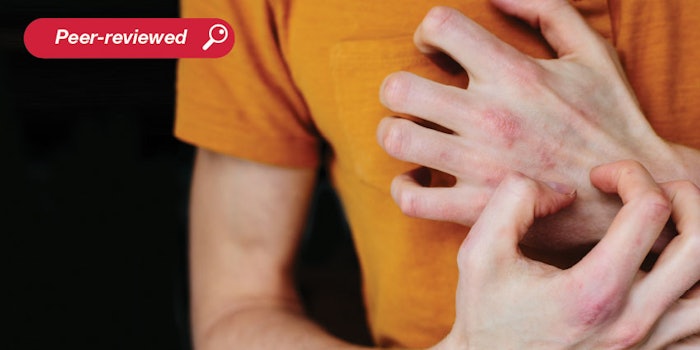
Read the full article in the January 2022 digital edition. . .
Psoriasis is a scaling dermatosis described as a chronic, inflammatory and hyperproliferative mediated skin disease. The prevalence of psoriasis ranges across all age groups and affects 0.6-4.8% of people worldwide. In addition to genetic predisposition, environmental factors play an important role and lead to varying prevalence. However, the mechanism of psoriasis is not yet fully understood. Typical symptoms are scaly erythema or plaques and can be localized or occur all over the body. The disease is difficult to treat and often carries a lifelong burden and health risks. High-risk recurrence factors include tobacco use, alcohol, humidity, upper respiratory tract infections, certain medications, psychological stress, obesity and increased body fat.
In particular, psychological factors have a significant influence on the course of disease progression and symptoms in skin conditions. Systematic examinations have supported this awareness. Today, diseases such as atopic dermatitis, acne or psoriasis are therefore summarized as psychosomatic dermatoses. In return, chronic skin diseases are often experienced as highly stressful by those affected. This may even lead to the manifestation of mental disorders if the person concerned has the appropriate disposition. As a result, these individuals often find themselves in a downward spiral between stress and recurrent exacerbation.
Furthermore, beyond disease, homogenous skin is usually considered to be beautiful and this impression of natural beauty has been connected with the individual's psychological well-being. People whose skin does not meet a societal expectation of perceived beauty can also fall into a downward spiral; especially in cases of apparent, prominent skin diseases.
To holistically address skin conditions, well-being and beauty, the present work looks to traditional Chinese medicine (TCM). According to the TCM approach, symptoms and diseases are expressions of the body being out of balance. In TCM, a view of the disease alone, as known from Western orthodox medicine, is not common.
Traditional Chinese Medicine
The energetic balance, i.e., qi or chi, plays an important role in TCM. Briefly, the philosophy is based on the doctrine of yin and yang opposing forces and the principle of the five phases of transformation—the five types of qi, also known as wuxing. According to TCM, suffering from a disease leads to an imbalance of qi. This means that yin or yang have a deficit or an excess, respectively.











